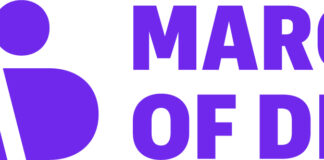WASHINGTON, Aug. 1, 2016 /PRNewswire-HISPANIC PR WIRE/ — The American College of Emergency Physicians (ACEP) and its Puerto Rico Chapter today jointly took issue with recent media reports blaming emergency patients for seeking care and for contributing to an ongoing fiscal crisis in the U.S. Territory ⎯ saying the statements put patients at risk.
“We need to provide alternatives for patients before blaming them for seeking emergency care,” said Fernando Soto, MD, FACEP, president of Puerto Rico ACEP. “Many people in Puerto Rico are not able to get timely appointments with primary care physicians, let alone medical specialists. Some people also are seeking emergency care because they have the symptoms of an emergency, but it turns out they do not have medical emergencies. These people still should seek emergency care, because how are they supposed to know? Patients should not be put in the position of having to diagnose themselves. If you think you’re having the symptoms of a medical emergency, seek emergency care.”
Dr. Soto also took issue with using hospital admission statistics as a gauge for whether emergency visits were appropriate.
“There are many medical conditions, such as broken bones and some breathing issues, which require emergency care, but in many cases do not require hospitalization,” said Dr. Soto. “In fact, it can save money if an emergency physician can treat and safely discharge patients from the emergency department without admitting them to the hospital. Emergency patients, when asked about whether they’ve attempted to contact their primary care physician answer that they did but could not resolve their issues or get follow up care. Many patients also are sent by the primary care physicians themselves.”
In addition, Dr. Soto said that urgent care centers could be good options for minor medical conditions, but are not substitutes for emergency care. Nearly three-quarters of emergency physicians responding to an ACEP poll ⎯ including ones in Puerto Rico ⎯ said they treat patients every day that ended up in the ER after first seeking help in urgent care centers that were not equipped to care for them. Many people may feel they are saving time or money by going first to urgent care, but in instances of serious illness, that loss of time can be dangerous.
According to the Centers for Disease Control and Prevention (CDC), 96 percent of emergency patients need medical treatment within 24 hours.
Emergency Care or Urgent Care? http://www.emergencycareforyou.org/uploadedFiles/HealthTopics/About_Emergencies/WhereGoMedCare.pdf
Warning Signs of a Medical Emergency: http://www.emergencycareforyou.org/Emergency-101/Is-it-an-Emergency-/
ACEP is the national medical specialty society representing emergency medicine. ACEP is committed to advancing emergency care through continuing education, research and public education. Headquartered in Dallas, Texas, ACEP has 53 chapters representing each state, as well as Puerto Rico and the District of Columbia.

Logo – http://photos.prnewswire.com/prnh/20100616/DC22034LOGO-d







